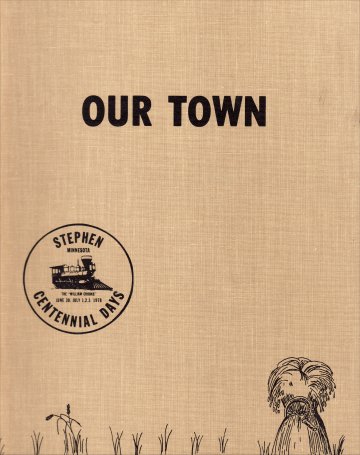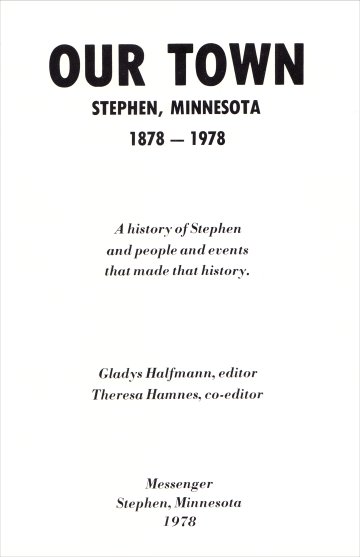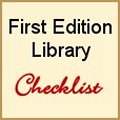|
How to Price Inventoryby Craig Stark 11 April 2023 |
How to Price Inventory:
Current and Historical Pricing Resources
When discussions pop up about what a specific book is "worth," somebody often points to prices of copies that are currently listed for sale, whereupon somebody else
reminds us that those are prices of books that haven't sold, the implication being that so-called comps (or comparables) of unsold books are all but useless for pricing your own
stuff. What's needed instead are historical prices - that is, prices of books that have actually sold. This is the gold standard, right?
But is any of this true? Is it actually meaningless to investigate prices of unsold books? What's more, are prices realized - historical prices - any better at pointing to
likely outcomes today than unsold books are? It's been my observation that, among booksellers, much more credence is given to historical pricing, and if you want it, with an
exception or two, you have to pay for it.
But just for fun, let's approach this on the assumption that the truth is mingling somewhere in this unsold/sold realm - that both unsold and sold books can offer guidance in
pricing. Also, for the moment, let's set aside what the inevitable smartass then enters the discussion with: The true value of a book is what the buyer and seller agree that
it is. Nothing more, nothing less. Can't argue with that. But the ultimate question here isn't what a book is worth at any moment in time; we're only seeking some guidance on how
to price it, and the price we decide upon should necessarily include whatever we as sellers can bring to the table, which in turn begs the question, "What can we do to build
value into things over and above what comps can tell us?"
Some examples.
Speaking first of unsold books, what can a search of a mega site ("mega" meaning search platforms that combine data from multiple venues) tell us about likely value?
First and foremost, this: How many competing copies are listed?
On Abebooks search especially, and especially applied to older books in the public domain, you'll most likely need to page through many listings of Print-On-Demand (POD's)
before you even encounter a valid offering. POD's are readily discernible by dummy, generic "photos" of books or much more recent publication dates graded as new, though to be fair,
some POD sellers actually mention that their inventory has yet to have been born. The thing is, probably 99% of them aren't books at all, and, when they do become books,
reproduction quality nearly always plunges. In any case, apart from POD's, to at least to some extent you'll need to compare apples to apples here. Number of hardcovers. Number
of softcovers. Number of copies with or without dust jackets. Number of first editions, Number of signed books. And any other factor that points sharply to value. This we can say
for most examples: The more copies you find, the less valuable a copy is and/or, generally, the longer it will take to sell. Simple supply and demand.
And what about what these copies are priced at? Are they hatched in reality or dreamland? This is more difficult to ascertain. There's a phenomenon on almost any venue called
piggybacking. This occurs when a bookseller prices a book not on the basis of what it's sold for in the past or on any other legitimate supporting evidence but on the basis of what
other booksellers are asking for it, and of course the perceived value is often what the higher-priced copies are listed at. Human nature. If you think hardly anybody would be
dumb enough to believe that the highest prices shown in results can automatically reflect a probable outcome for you, think again. I've long since lost count of the number of so-called
comps printed by estate liquidators I've encountered, say, from whatever venue was used to search their books, and subsequently laid inside a book's front cover - and often the
highest price is given the most credence. Or worse, a seller can't even find a comparable book for sale and prices it to the moon. This happens on Amazon with alarming frequency
but by no means only there. And I am allowing for the occasional highest price book that truly is something special - that is, priced within reason. For most purposes, therefore,
unsold listings can be useful for getting a feel for how common a book is and at times - though with some skepticism - how it might reasonably be priced. And don't forget that
this is also related to who is selling the book. Is it a known bookseller with an extensive track record of success?
The thing is, this isn't an exact science or, in any meaningful way, formulaic in essence. A cluster of factors need to be investigated. It might be how the description is written
that drives the outcome, the quality of photos, the legitimacy of the bookseller, and so on that give you confidence or not in a price. The more you do this searching stuff, the better
you'll be at using prices of unsold books to price your own.
Now let's turn to sold books. There was a time when I truly wanted to believe that historical pricing data was the be all and end all to pricing my books. But it wasn't too long before
I began to observe that historical outcomes are often all over the map. Last month's article on BYTE magazine is a perfect example - for the premier issue, a range of a few bucks to $150
shows up. Over time I came to see that there was more to this game. Yes, historical pricing can be helpful in indicating potential outcomes of one's own inventory, but the more copies of a
certain book or magazine that were issued (50,000 in BYTE magazine), the more work usually needs to be done to raise your price to a level worth bothering with - and sometimes you just
can't make a purse out of sow's ear. Again, experience is your friend, knowing when you can and can't enhance things by building your precious labor into them.
There's more. Sometimes, even if you search unsold and sold books alike, you can't find what you're looking for. This compounds itself if you assume that it's because there aren't
any copies out there.
Examples:
Titles can be ambiguous. Sometimes there's one title on the cover of a book and a different title on the title page. In standard bibliographic practice, when both are present,
the title page title trumps the cover title in the description, but does every bookseller take this approach? Not by a long shot. And sometimes, if there are two or more titles present,
it's no longer a matter of what standard practice is; it's how am I even going to find the damn thing in search? Here are some possibilities for the following book:
Our Town
Our Town: Stephen Centennial Days
Our Town: Stephen, Minnesota 1878-1978
And what about this pesky subtitle?
A History of Stephen and People and Events That Made History
You might be inclined to ignore the latter because it doesn't occupy a prominent place on the title page and is nowhere to be found on the cover, but consider that it's the
only title of the four that includes the words "Stephen" and "History." These are keywords that a potential buyer would likely use to find a copy. Will yours be found if you
leave this out?
What I'm getting at is, the worst thing you can do is assume, on the basis an unsuccessful search, that there are no other copies for sale online, price it up to $$$, only to
discover later -after buying it - that there are multiple titles listed on Amazon starting at $9.99. How does this happen? Take Amazon. Since I usually buy and sell uncommon or
scarce books across multiple venues, there are many times that an Amazon search delivers no results - or even a catalog page with no copies listed. Do I assume that there are no
copies on Amazon? Or no catalog page to list one on? Never. When this happens, Google the following: "[title of book]" and "amazon." It's amazing how often this tactic delivers a
result that leads you back to an Amazon catalog page that was nowhere to be found with a search on Amazon. If this doesn't work, I try an alternate title, if there is one. If
this doesn't work, I try searching the title alone, forcing the search with quotation marks. And, of course, this happens in the context of searching other venues as well, and
sometimes it can be helpful to search WorldCat if for no other reason than to nail down what the title is, though getting a feel for how common a book may be via how many libraries
hold it can also be very useful.
ISBN's create potential issues as well. If you buy a book online - or are considering buying one - if its publication date falls into the early 1970's or newer, try to find out
what the ISBN is (if the seller doesn't provide one), though in less common cases there may not be one. Search both ways, title then ISBN. It can be an eye opener. Sometimes an ISBN
search will deliver more copies than a title search will, sometime vice versa. I realize you can't burn an exorbitant amount of time searching every book that comes your way to exhaustion,
but at least cover the most likely suspects and experiment some.
What's generally true for relying on unsold books to arrive at asking prices is to some extent true for sold books. The numbers of copies that come up can illuminate how common a
book is. Or uncommon. When I shop for books, I look more often for reasons not to pull the trigger than I do for reasons to pull it. Very often, the reason not to snag it has to do
with how common it is. Still, there is something comforting about coming across actual sale prices. If somebody can sell it for that once; it can be sold twice, maybe. And do take care
to investigate the age of historical records. These can vary greatly, and at the risk of overstating the obvious, the older a record is, the less likely it will reflect what's likely to
happen in today's market.
The takeaway here is that all search methods are flawed in some way and frequently deliver incomplete results. The best you can do is cover as many bases as it makes sense
to. As for historical pricing, in this context, my purpose isn't to survey as many search options as possible, but let's mention a few of the more useful ones.
Keepa (searches Amazon price history, usually back a few years) $$
Rare Book Hub (focuses on auction house records, sometimes back many years) $$
Terapeak (searches eBay price history, most relevantly for the past year) Free to registered eBay sellers.
WorthPoint (searches primarily eBay price history, often back many years) $$
In Part II, I'll offer several pricing case histories.
to next article >


Questions or comments?
Contact the editor, Craig Stark
editor@bookthink.com
















